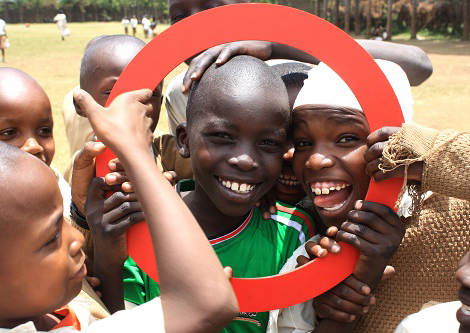Live Below the Line: I'm not 'playing at being poor', I'm holding a mirror to my own privilege
How could someone living with a budget of less than £1 a day be expected to find a job when they must be exhausted from poor nutrition?

Your support helps us to tell the story
This election is still a dead heat, according to most polls. In a fight with such wafer-thin margins, we need reporters on the ground talking to the people Trump and Harris are courting. Your support allows us to keep sending journalists to the story.
The Independent is trusted by 27 million Americans from across the entire political spectrum every month. Unlike many other quality news outlets, we choose not to lock you out of our reporting and analysis with paywalls. But quality journalism must still be paid for.
Help us keep bring these critical stories to light. Your support makes all the difference.
When I launched Live Below the Line in the UK in 2012 I didn't think doing the challenge was going to be difficult at all. I thought those who screwed up their faces when I proposed it were simply lazy. I remember being a student - the Smart Price pies, Pot Noodles and spaghetti shapes. Living on so little for over three years, how hard could living on £1 a day for five days really be?
Just two days into the challenge week and I was already very tired and cranky. I had a headache and I was trawling the internet for things to take my mind away from the hunger. All I could think about was my next meal and what I could buy in the local shop near the office with the 7p I had left in my budget (nothing, as it turned out). But most importantly, it was only through experiencing this feeling of powerlessness that I was given an entirely different perspective on the lives of those living in extreme poverty.
Now let me be clear- this challenge isn’t about ‘playing at being poor’. More than imitation, the challenge serves as an opportunity for contemplation and self-challenge. It holds up a mirror to your own privilege, forcing you to ask yourself the tough question- ‘if I found the challenge difficult, how on earth would I be able to cope with the reality of extreme poverty?’
It was the lack of choice that made the challenge so incredibly humbling. Poverty traps. It decides the quality and quantity of your food, it determines what you spend your time doing and makes impossible decisions a reality. For those living in extreme poverty the stakes couldn’t be higher- how could someone living with a budget of less than £1 a day be expected to find a job when they must be exhausted from poor nutrition? How could they find the energy to walk 6 kilometres to find clean water? What happens if your child gets sick - do you feed the family or buy medicine?
During my last time taking the challenge I took a phone call when I was cooking my rice. I got distracted and the rice burnt. I had no money left in my budget, so my choice was to eat the burnt rice or go to bed hungry. These kinds of restrictions don’t compare to what people living in extreme poverty face, nor could they. Instead, they serve as a potent metaphor for the cycle of poverty itself, reminding you that there are no easy solutions to inequality.
Dealing with poverty is not, as is believed by a troublingly large number of people, simply a case of getting people to ‘pull themselves up by their bootstraps’. When you are restricted by systemic circumstance hard work is not enough- only with a wholesale adjustment of the global economic system can people be freed from the trap of extreme poverty.
That’s why Live Below the Line isn’t exclusively about the money we raise. Instead, every time I take the challenge it serves as a harsh wake-up call that forces me to confront the global imbalance of power and wealth that creates extreme poverty. It moves me to action. It makes me want to tell everyone I know that the inequality between the very rich and the very poor is costing lives and needs to be stopped right now. We cannot remain passive.
The need to act has never been greater- last year more than 1.2 billion people around the world survived on less than $1.25 a day. Meanwhile, in the UK the amount of food we wasted could fill Wembley Stadium four times over. We believe that when an inspired, critical mass of individuals take meaningful action, we can change the policies and practices that contribute to this injustice.
Join our commenting forum
Join thought-provoking conversations, follow other Independent readers and see their replies
Comments